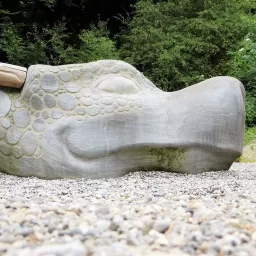
Common Enemies of the Rose Bush and How to Combat Them
Growing rose bushes and other colorful flora can be one of the most rewarding parts of gardening for pleasure. Roses in particular are among the most popular species of blooming flower among recreational gardeners. Unfortunately, human beings aren’t their sole admirers — roses face a large number of pests and disease obstructing their goal of healthily budding and spreading the beauty and fragrance of their lovely blossoms.
This has given them a reputation for being notoriously difficult to tend and cultivate, but this is for the most part untrue. In actuality, roses fall somewhere in the middle ground as far as care goes. While they may have a high number of potential enemies, they don’t all occur at once and there are specific treatment regiments designed for each one. Here I outline some of the more common threats and how to defend against them.
Insects
- Thrips: light colored roses are particularly vulnerable to thrips, especially in early summer. They are small brown or yellow insects that cause irregular leaves, misshapen buds and unsightly blooms (brown spotted.) Spray with neem oil or insecticidal soap.
- Aphids: Aphids are minuscule, pear shaped and love to attack young growth on your rose. Dislodge them with a strong spray from a hose or treat with insecticidal soap, though never in temperatures of 80 degrees.
- Japanese Beetles: Copper and green metallic looking bugs, they usually occur in small enough quantities to individually pick off and drown or place into baggies (avoid squishing, which releases attracting pheromones.) For greater numbers, check your local gardening store for Sevin and follow the provided instructions exactly.
Fungi
- Powdery Mildew: Occurring only in dry weather, this mildew creates a white, powdery residue that tends to congregate on the leaves in particular. Fortunately there are a variety of treatments, including spraying with a baking-soda solution, summer oil, a sulfur-based fungicide or an anti-desiccant (which keeps the plant hydrated.)
- Rust: Another disease that is prevalent during the dryer months. With rust, it is important to remove affected leaves and be careful with watering, doing so only at ground level. Treatment options include lime-sulfur fungicide, dormant oil or rusticide – the later option can again be acquired at a local garden center (be sure to read and follow label instructions precisely.)
- Black Spot: This fungus is more common and detrimental during hot and humid weather, causing small black spotting and fringed edges to occur on the leaves. Affected leaves must be removed and destroyed (do not use for mulching or compost) and the plant pruned to improve air circulation. Water only in the mornings, and spray with neem oil, summer oil, sulfur-based spray, a baking soda solution, and certain commercially available strong chemicals.
On a side note, let it’s important to know that like a healthy human, a healthy rose bush is much better equipped to naturally fight off parasites and illnesses, so make sure to read up on proper rose-tending practices to keep your plants strong and thriving. In addition, roses are being specifically bred for resistance to many of their typical bests, and each year many improvements are made. Phasing newer breeds into your gene pool at regular intervals is definitely a good practice.
Following these guidelines for keeping your roses disease free in addition to regular nurturing gardening habits will definitely ensure your flower garden bears its most beautiful, fragrant flowers yet!
rose garden
#Common #Enemies #Rose #Bush #Combat
Will be pleased to have you visit my pages on social networking .
Facebook page here.
Twitter account is here.
Linkedin account here
Post byBedewy for info askme VISIT GAHZLY





